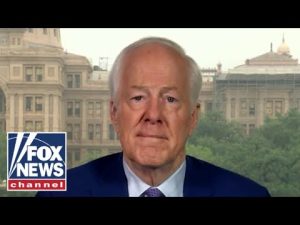The political scene in New York is no stranger to flamboyant personalities and controversial figures, and Doron Mangani seems to be the latest spectacle unfolding on this stage. An individual with an eclectic background, spanning from Uganda to a college application that carried a touch of opportunistic flair, Mangani presents himself as the kind of novelty best suited for the identity-addicted left. One wonders if he’s playing bingo with identity labels, simultaneously checking boxes for race and ethnicity in hopes of hitting the jackpot of political inclusion.
Mangani’s candidacy raises eyebrows, especially with his past choices to identify as “Black” on college applications, despite his Indian-Ugandan heritage. This maneuver is believed to have nudged the doors at elite institutions like Columbia University slightly more ajar. However, if one squints past these details that are heavily draped in controversy, his political ascent becomes clouded by more ominous proposals that echo feats from Marx’s playbook rather than a democratic manifesto. Imagine a New York where supermarkets run on a ration system—a dystopian delight for the far-left but a chilling prospect for anyone familiar with the dour aisles of a socialist co-op.
Adding further spice to this curry is Mangani’s stance on issues of anti-Semitism that left many New Yorkers, especially those in the Jewish community, feeling unease rather than reassurance. His reticence to condemn what many see as blatant acts of hate or to acknowledge the significance of monumental historical events like the Holocaust hints at a leader who dances more to the rhythm of controversy than compassion. Not quite the ally you’d wish for when hate crimes are escalating, making New York an uncomfortable statistic for anti-Semitic incidents.
The law enforcement landscape isn’t safe from Mangani’s ideological bulldozer either. In a move that would make any screenwriter for a dystopian sci-fi cringe, Mangani envisions a New York stripped of effective policing. Rejecting cooperation with federal immigration authorities, he aims to fashion a metropolis where the idea of law and order teeters precariously on the brink of anarchy. While some might applaud his efforts to protect communities often maligned and misunderstood, aligning more with protecting than prosecuting could unleash a maelstrom of chaos on already tremulous city streets.
Adding a layer of charisma that only a few can pull off, Mangani has managed to woo a certain demographic of young voters looking for a shake-up. In the battle of charm versus policy, charisma alone doesn’t ensure steady governance. While captivating speeches and engaging presences lure young New Yorkers, the practical implications of Mangani’s policies could unravel an already fragile city fabric. The left might tout his allure as a shining example of youth engagement, but let’s hope they’re prepared for a reality check should policies meet practice and theory clash with the hard-hitting pangs of practical city management.
In this political carousel, only time will tell if New Yorkers will opt for this controversial candidate who pulls neither punches nor identity card stunts, but the city’s election will certainly answer that lingering question: Do charisma and identity overshadow sound policy and stability? Stay tuned, because depending on how this plays out, New York could become the latest liberal experiment or a cautionary tale for Democratic democratic romancing.







